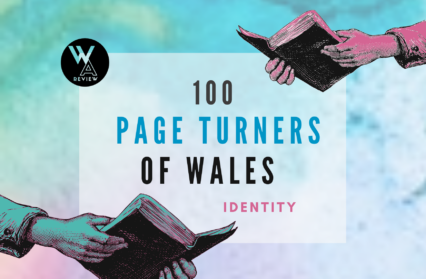Identity | Emma Schofield takes a look at the question of ‘Identity’ for the next categories in our 100 Page Turners of Wales series, Wales Arts Review’s exploration of the riches of Welsh fiction.
And so to one of the most challenging and poignant topics in our run down of 100 page turners from Wales, the question of identity. One of my own favourite lines about identity features in Charlotte Williams’ 2002 novel Sugar and Slate, where the narrator astutely observes ‘poor old mixed up Wales, somehow as mixed up as I was’ as she reflects on her life as a woman who is both Afro-Caribbean and Welsh, living in a nation which so often seems unsure of its own identity. Williams’ autobiographical novel encapsulates the titles chosen by our judges in this category, with questions regarding national and regional identity so often running parallel to reflections on personal identity. This coming together and an inherent sense of regional and national identity also takes centre stage in Raymond Williams’ Border Country where protagonist Matthew returns to his hometown to visit his dying father and is confronted by the difference between his adult life in London and his childhood on the Welsh-English border.
Equally confronting, Ron Berry’s 1970 novel So Long Hector Bebb offers up the brutal story of a young boxer, alongside a cutting analysis of the decline of Berry’s beloved Rhondda community. Industrial decline forms the backdrop for Christopher Meredith’s Shifts, which features a bleak love triangle between its three central characters as they struggle to come to terms with their own complex identities. For the characters in Shifts, starting to understand their own sense of personal identity is interwoven with a need to understand how the community and environment around them has shaped every part of their lives, often without them fully realising.
Fast forward to some of the recent nominations on the list and these questions are still central to each novel. John Sam Jones’ powerful Crawling Through Thorns depicts protagonist John reflecting on his life, following life-saving heart surgery. On the suggestion of his cardiac psychologist, John is forced to explore the memories of his life, including the struggles he faced with his sexual identity and the shadow cast over parts of his life by discrimination and the rise of AIDS. Nikita Lalwani also takes on the spectre of cultural discrimination in her 2020 novel You People, which explores the lives of migrant workers in a London pizza restaurant. Lalwani’s careful prose is able to explore the horrors faced by undocumented migrants, alongside that of a young Welsh woman who has fled to London to avoid to escape a broken home and an alcoholic mother. What binds the characters’ very different stories is their struggle with their own individual sense of identity and their bid to come to terms with their pasts in order to understand the people they have become.
To many of the questions raised in these novels, there isn’t a clear answer. Debate over, regional, national, racial, cultural and sexual identity rages on, perhaps more significantly now than ever before. Yet there is much to be found in the novels on this list about the complexity of identity and the centrality of our past and the people around us in shaping our personal sense of who we are and what we believe in.
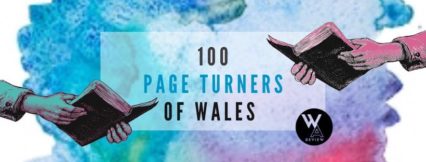
Identity
Crawling Through Thorns by John Sam Jones (2008)
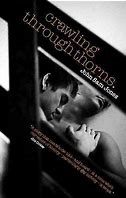
Synopsis: Recovering from heart surgery, John Idris Jones finds himself remembering painful scenes from a life lived in the shadows cast by religious fundamentalism, bigotry and misunderstanding. When the psychologist at the cardiac rehab clinic suggests that these forays into the past may hold the key to becoming reconciled to the reality of coronary heart disease at such an early age, John embraces the memories. From a Victorian asylum in rural Wales in the early 1970s to the radical politics of HIV in Liverpool during the late eighties, John’s is a journey in search of meaning and identity through the territory where sexuality, religion and culture collide. San Francisco’s gay community during the early eighties offers a vibrant backdrop to John’s emergence from the shadows, but AIDS begins to cast a more sinister darkness.
Review Quotes:
‘Crawling through Thorns is the story not just of a personal quest for honesty and openness, but also of a society having to confront its fears and prejudices. Highlighting the difference between the toxic shame delivered upon the oppressed and the real shame that should be felt by the oppressors, it is a challenging and compulsive read – often harrowing but ultimately uplifting.’ Suzy Ceulan Hughes
Resources:
Wales Online Author Notes: John Sam Jones
Sugar and Slate by Charlotte Williams (2002)
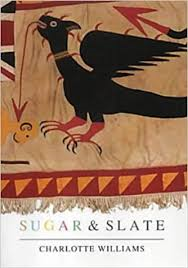
Synopsis: A mixed-race young woman, the daughter of a white Welsh-speaking mother and black father from Guyana, grows up in a small town on the coast of north Wales. From there she travels to Africa, the Caribbean and finally back to Wales. Sugar & Slate is a story of movement and dislocation in which there is a constant pull of to-ing and fro-ing, going away and coming back with always a sense of being ‘half home’. This is both a personal memoir and a story that speaks to the wider experience of mixed-race Britons. It is a story of Welshness and a story of Wales and above all a story for those of us who look over our shoulder across the sea to some other place.
Review Quotes:
‘Above all, it’s a story for those of us who look over our shoulder across the sea to some other place. It is Williams’s affinity with Wales that makes the examination of her mixed race persona distinctive and her humour and honesty which makes it exceptional.’ Hannah Jones
Resources:
Multicultural Wales: Sugar and Slate, an essay by Dr Lisa Sheppard
Writers Rooms: Charlotte Williams
Dignity by Alys Conran (2019)
Synopsis: Magda is a former scientist with a bad temper and a sharp tongue, now living alone in a huge house by the sea. Confined to a wheelchair, her once spotless home crumbling around her, she gets through carers at a rate of knots. Until Susheela arrives, bursting through the doors of Magda’s house, carrying life with her: grief for her mother’s recent death; worry for her father; longing for a beautiful and troubled young man. The two women strike up an unlikely friendship: Magda’s old-fashioned, no-nonsense attitude turns out to be an unexpected source of strength for Susheela; and Susheela’s Bengali heritage brings back memories of Magda’s childhood in colonial India and resurrects the tragic figure of her mother, Evelyn, and her struggle to fit within the suffocating structure of the Raj’s ruling class. But as Magda digs deeper into her past, she unlocks a shocking legacy of blood that threatens to destroy the careful order she has imposed on her life – and that might just be the key to give the three women, Evelyn, Magda and Susheela, a place they can finally call home.
Review Quotes:
‘Beautiful… It is not only the personal dimension that interests Conran, but the political, too… The whole work is centred on the politics of perspective: compassion for the three female protagonists shifts as the novel’s emotional landscape becomes more difficult to navigate… Conran succeeds in allowing the reader to understand ways of thinking that are an anathema today, while simultaneously remaining deeply critical of some of her characters’ colonialist mentality… Dignity is poetically written… In the second part of the novel, young Magda’s voice explodes on the page with vibrancy and delight, showing just how well Conran captures the language of children. The work is rich in both language and storytelling and so much is at play between the lines… Conran’s work is subtle and complex: there is no one right story about the Empire. Instead we are offered multiple views, ironies and contradictions that only one of most talented, tender writers in Wales could portray.’ New Welsh Review
‘I loved this… Magda is a real stand-out character for me in books I’ve read recently, I can’t quite stop thinking about her… A really interesting book.’ Jane Garvey
Resources:
Wales Arts Review, Review of Dignity
There Was a Young Man from Cardiff by Dannie Abse (1991)
Synopsis: Poet, novelist, playwright, diarist, anthologist and broadcaster, Dannie Abse has contributed hugely to literature in Britain. In There Was a Young Man From Cardiff he presents a series of deceptions – or are they? – which ask about the nature of ’truth’ and ’reality’. Characters and events materialise and change as though a mist swirls around them: twins appear and disappear in ’Madagascar’; ’The Marvellous Girl’ echoes the ’marvellous boy’ of Chatterton, whose writing fooled the literary world. Behind these fictions is the young Dannie, newly qualified doctor struggling to grasp the post-war world of adults, relationships, family and illness. His progress towards a better understanding of life is mirrored by his development as a writer. Charming, quirky, Dannie Abse’s fiction is a world in which everyday surfaces are underlain by the strange, scarcely understood currents of human nature.
Review Quotes:
‘Mr Abse writes beautifully and tenderly of the things he has seen and felt.’ The Times.
Resources:
BBC News: Cardiff Born Poet Reflects on His Career As He Turns 90
The Guardian: Obituary, Dannie Abse
Wales Arts Review: In Conversation with Dannie Abse
Shifts by Christopher Meredith (1988)
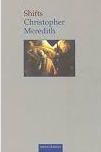
Synopsis: Set in a small town facing the coming shadow of industrial decline, Shifts delves into the relationships between Jack, Keith and Judith as their lives intertwine and Keith and Judith’s marriage is put to the test. When the factory in which Jack and Keith work the characters struggle to find purpose in their lives and each turns in on themselves in a bid to understand their identity and decide what their future may hold. As Jack and Judith begin a secret affair, Keith buries himself in his research into local history and his study of the Welsh language as he tries to make sense of everything which is happening around him.
Review Quotes:
‘The classic statement about the [post-industrial] situation, both social and personal.’ Stephen Knight writing in One Hundred Years of Fiction
‘This novel is so good it is hard to believe it is his first.’ The Western Mail
Resources:
Wales Arts Review: Greatest Welsh Novel – Shifts
Literary Atlas of Wales: Shifts
Border Country by Raymond Williams (1960)
Synopsis: When railway signalman Harry Price suddenly suffers a stroke his son Matthew, a lecturer in London, makes a return to the border village of Glynmawr. As they struggle with their memories of social and personal change, a moving portrait of the love between a father and son emerges.
Review Quotes:
‘I do not think that I have ever been so moved by a modern novel as I was by this tremendously exciting and beautifully written work… I know that it has made me take stock of my own position, and cannot doubt that it is a great novel.’ Dennis Potter
Resources:
Literary Atlas of Wales: Border Country
Wales Arts Review: Greatest Welsh Novel – Border Country
The Guardian: A Book That Changed Me
Hearts of Wales: An Old Romance by Allen Raine (1905)
Synopsis: Allen Raine, the pen name of Anne Adaliza Puddicombe and was actually one of the best-selling authors of the late Victorian/early Edwardian age. Raine published ten novels during the course of her writing career, of which Hearts of Wales centres on questions of national and personal identity. At it’s heart, the novel is a historical one in which Raine explores the events leading up to Owain Glyndwr’s final, and ill-fated, attempt to secure independence for Wales. Raine uses this backdrop to recount a narrative which also challenges the role of women within the domestic and national spheres, drawing together the personal experiences of protagonist Eleri and the struggle for national identity in an evocative exploration of what freedom and identity really mean at both national and individual levels.
Review Quotes:
‘Allen Raine was a romantic novelist but her unequalled knowledge of Welsh life and Welsh society mark her down as an influential and distinctive writer who captured the essence of a country still trying to find its place in the modern world. She deserves far more recognition than has yet been accorded.’ Phil Carradice
Resources:
Allen Raine: Forgotten Welsh Writer
Addlands by Tom Bullough (2016)
Synopsis: Addlands uncovers the story of the Hamer family and their farmland home, set in the hills of the Welsh borders. The plot centres on Idris, a proud man of the plough and the prayer sheet who is haunted by his memories of experiencing the First World War. Then there is the boy Oliver, who grows to be a near mythic giant in the community, a fighter, a drinker, inescapably rooted in their hard, remote valley. Finally, there is Etty, Oliver’s mother and the person at the centre of this close constellation, who navigates old ways and new technologies as she struggles to ensure her family’s survival. From the ancient silence in the hills to the encroaching roar of modernity, spanning seventy years, Addlands explores the interwoven identities of land, animals and people as they are drawn together in this mesmerising tale which Bullough weaves.
Review Quotes:
‘Addlands is a mesmerisingly beautiful experience, a haunting fusion of person, place and history. It is a really important contribution to the literature of the Welsh borders.’ Gerard Woodward
‘Marrow-deep in its connection to place yet global in its thematic exploration and significance, Addlands does what literature should unstintingly aspire to do: make individual lives the essential stuff of epic. In crystalline, perfect, and stunning prose, Tom Bullough sites, convincingly and movingly, the entire history of these islands in a small section of Radnorshire. The presence of this book – in shops, in libraries, in homes, in the minds of its readers – will improve the broken, atomised world. It’s an astonishing work of words.’ Niall Griffiths
Resources:
The Guardian: Review of Addlands
You People by Nikita Lalwani (2020)
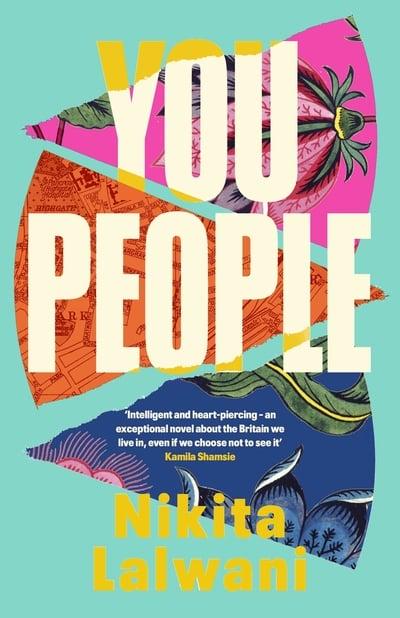
Synopsis: The Pizzeria Vesuvio looks like any other Italian restaurant in London – with a few small differences. The chefs who make the pizza fiorentinas are Sri Lankan, and half the kitchen staff are illegal immigrants. At the centre is Tuli, the restaurant’s charismatic proprietor and resident Robin Hood, who promises to help anyone in need. Welsh nineteen-year-old Nia, haunted by her troubled past, is running from her family. Shan, having fled the Sri Lankan civil war, is desperate to find his. But when Tuli’s guidance leads them all into dangerous territory, and the extent of his mysterious operation unravels, each is faced with an impossible moral choice.
Review Quotes:
‘A moving, authentic, humane novel which raises fundamental questions about what it means to be kind in an unkind world.’ The Guardian
‘Intelligent and heart-piercing – an exceptional novel about the Britain we live in, even if we choose not to see it.’ Kamila Shamsie
Resources:
The Telegraph: What to Read – You People
So Long Hector Bebb by Ron Berry (1970)
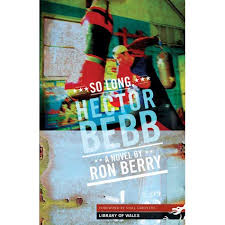
Synopsis: This powerful novel by Ron Berry explores the life of Hector Bebb, a brewery lorry driver by day and a hard-hitting, ambitious young boxer by night. Under the influence of his coach, Abe, Hector becomes stronger, but also begins to lose his own identity as he drawn further into Abe’s dark view of the world. While Hector has the opportunity to achieve his dreams and become a world class fighter, his disillusioned wife is left to suffer the consequences and when Hector returns home after winning a big fight he finds himself at a pivotal moment in his life. In Berry’s unique style, the narrative is told by a series of interior monologues, moving effortlessly between the characters Berry evokes a story which explores the complexity and vulnerability of individual identity.
Review Quotes:
‘Hector Bebb and his loyal associates stand as symbols of the put-upon, the inarticulate underdogs of our grubby industrial society … whose humour, tenacity and fierce spirit pass almost unnoticed in English Literature.’ Alun Richards, Planet
Resources:
Greatest Welsh Novel: So Long Hector Bebb
Independent: Review of So Long Hector Bebb
Identity part of a larger series highlighting Wales’ rich literary tradition, you can find the whole series here.


